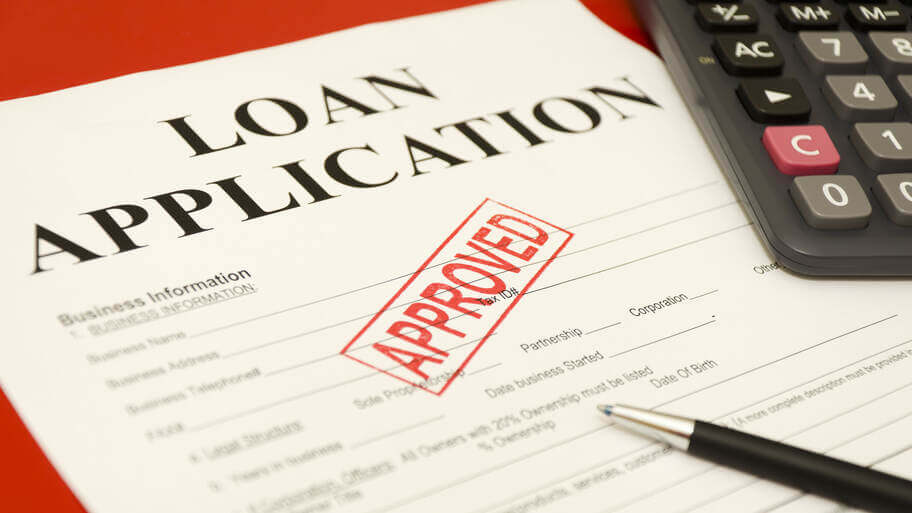The government assists certain people in need by giving out disability benefits to qualifying individuals. These benefits are paid out monthly until you are able to work again or on a regular basis without an expiration date depending on the severity of your condition.
However, one of the main concerns with people on disability is whether it’s possible to qualify for a loan while receiving disability benefits. If you’re in a similar situation, you’re in the right place.
So, you may be wondering how to get a loan while on disability benefits. In this article, we’ll look at how you can get a loan if you’re receiving disability benefits, the types of loans available, and what to consider before applying for such loans. Let’s dive in!
Can You Get a Loan if You Are Receiving Disability Benefits?
Yes, it’s possible to get a loan if you’re receiving disability benefits. The benefits are treated as income or a form of salary, and you need to show a steady chain of benefit payments and any other income that you receive when applying for a loan.
And just like any other loan applicant, the lender will look at your credit score, credit history, Debt-to-Income (DTI) ratio, and ability to service loans to determine if you qualify for their funding.
In a nutshell, the fact that you’re receiving disability benefits doesn’t make you different from other loan applicants. The lender shouldn’t use disability benefits as a basis for discrimination.
Typically, you’re legally entitled to apply for a loan even when on disability benefits.
The Types of Loans Available for People Who Are on Disability
There are different types of loans available for people on disability, and the option you choose depends on your personal financial needs. Here are the common loans available in the market:
1) Personal Loans
Personal loans are loans meant to cater to various personal needs, such as paying medical bills and financing daily expenses. Most personal loans don’t require collateral, making them accessible for people on disability.
However, to qualify for unsecured personal loans for carers and care workers, or people on disability, you need to meet the minimum qualification requirements set by the lender. These include a high credit score, low DTI, good credit history, etc.
Your interest rate and loan terms are determined based on your qualifications. Here, a good credit score and low DTI attract favorable interest rates. In most cases, personal loans have a repayment period of between 24-60 months.
2) Medical Loans
These are low-interest loans designed to help people on disability cater to medical expenses. Medical loans come with flexible and favorable terms with a simple application process, making them ideal for people on disability.
An important thing to note about these loans is they fall under deferred-interest loans. This means your interest payments can be deferred during a given period of time, and you don’t have to pay any interest, provided you clear your entire balance within the given period.
However, if you fail to pay off your entire loan within the promotional period, the lender will charge you interest from the start date of the loan, including the repayments you’ve already made. This can make the loan too expensive on your end.
3) Mortgage Loans
You can also qualify for home loan programs while receiving disability benefits. You can apply for typical mortgage loans such as USDA loans and VA loans. If you have a very low income, USDA loans are the best option because the government gets to fund a portion of your mortgage payment.
However, some lenders may decline your application if you are on a short-term disability and don’t have any other source of income because your benefits will stop streaming in once you recover.
4) Auto Loan
If you have a car, you may use it as collateral for an auto loan. In case you default on your loan repayment, the lender will take your car.
Besides having a car as collateral, lenders will look at your credit score, credit history and the stability of your disability benefits, and any other income that you have.
5) Payday Loans
Can I get a payday loan on disability? Yes, you can qualify for a payday loan on disability. A payday loan is a short-term, high-interest loan you take to cater to your personal financial needs.
Many lenders offer payday loans for DSS (Department for Social Security), and to qualify for social security disability payday loans, you should have a social security card.
Disability payday loans, like other payday loans, have high interest rates compared to other loan options, and it’s advisable to avoid them if you can.
How Do You Get a Loan While Receiving Disability Benefits?
Typically if you’re receiving disability benefits, you can get a loan from most lenders, such as banks and other financial institutions. However, you must meet the lenders’ requirements, including an excellent credit score, stable income (benefits included), low DTI, etc.
But in case you don’t meet the lender’s requirements, you can still get loans from other sources to cater to your financial needs. Other sources of loans for people on disability include:
1) Borrowing from Family and Friends
This is a good source of short-term loans. When borrowing from your friends or family, ensure you put the loan terms in writing to avoid future misunderstandings. Also, be honest about your financial state; avoid giving misleading information.
2) Applying Through Credit Unions
You can also get a loan from a local credit union. Most credit unions aim at helping locals with low income or relying solely on benefits to cater to their financial needs. So, if you have a bad credit score and cant access funding from banks and other lenders, consider trying credit unions.
3) Applying for All the Help You’re Entitled To
Besides disability benefits, people on disability are entitled to other forms of financial help, including grants. So, consult your local authority or medical practitioner for advice on the type of help you can get depending on your situation.
What to Consider Before Applying
Here are the vital factors to consider when applying for a loan while receiving disability benefits:
Is the Loan Essential?
Ask yourself whether the loan is essential or you can still meet your needs without it.
Can I Afford the Loan?
Depending on your financial status, gauge whether you can afford to repay the loan without defaulting—make sure to factor in the interest rates, repayment terms, and other hidden charges.
Are There Better Loan Options?
Research different loan options and compare them in terms of their interest rate, the amount you qualify for, loan repayment terms, etc. Always settle for the loan option that meets your needs without putting too much pressure on your finances.
Wrapping Up
If you’re receiving disability benefits but still need additional financial help to cater to your needs, you can apply for various loans that you qualify for.
Take time to compare the different loans available for people on disability and settle for an option that perfectly suits your needs.
Source Image: Megapixl








